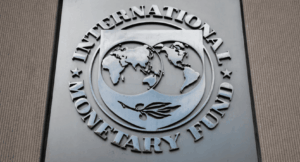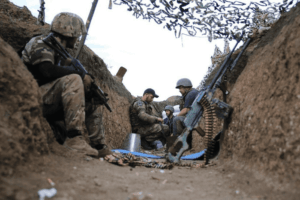The fighting in Ukraine harms not only people and nature but also the atmosphere. Constant explosions, fires, and the destruction of forests lead to significant emissions of aerosols and combustion products, which intensify the greenhouse effect.
Senior researcher at the Ukrainian Hydrometeorological Institute and the National Antarctic Scientific Center, participant of four expeditions to the Akademik Vernadsky station, Anastasiia Chyhareva, spoke about this in an interview with RBC-Ukraine.
According to her, the war leads to a reduction in forest areas that used to absorb CO₂ and cool the land. This alters local air circulation patterns and may have large-scale consequences for the regional climate.
The scientist also emphasized the consequences of the Kakhovka Hydroelectric Power Plant explosion. The disappearance of the reservoir has drastically changed the microclimate of southern Ukraine: the area where clouds and precipitation used to form first turned into steppe, and now a forest is gradually emerging there — bringing with it new weather patterns.
“Such processes need to be monitored over many years, but due to ongoing hostilities, we lack a complete observation network in these regions,” Chyhareva explained.
She stressed that humanity must change its approach to nature and the planet’s resources.
“The problems caused by climate change will only intensify. We need to implement real adaptation measures to mitigate the consequences,” said Chyhareva.
Earlier, RBC-Ukraine reported that the number of extreme weather events in Ukraine — heavy rains, droughts, hail, and storms — has risen sharply. Scientist Anastasiia Chyhareva explained that warming is shifting climate zones, making the south drier and the north warmer. Kyiv and other large cities are suffering from heat and flooding, while frosts are becoming increasingly rare.
The outlet also reported that unprecedented climate changes are taking place in Antarctica: during the polar winter, it rains, algae appear on the ice, and ice shelves are melting rapidly. Chyhareva noted that warming causes the ocean to lose salinity and threatens polar species that cannot adapt quickly enough.
Tags: climate change emissions EMPR.media environmental damage forest fires ukraine war war impact



![Ukrainian Roboneers and Latvian partners at the signing of a defence robotics and underwater technology cooperation memorandum. :contentReference[oaicite:2]{index=2}](https://empr.media/wp-content/uploads/2026/02/oboronka-480x270.png)
![Ukrainian artist creating work by candlelight and natural illumination during blackout while expressing war-era resilience and cultural creativity.:contentReference[oaicite:1]{index=1}](https://empr.media/wp-content/uploads/2026/02/roman-480x270.png)


![Volodymyr Zelenskyy and First Lady Olena Zelenska placing candles at the Alley of the Heavenly Hundred memorial in Kyiv to honor fallen Revolution of Dignity heroes. :contentReference[oaicite:2]{index=2}](https://empr.media/wp-content/uploads/2026/02/flags-480x270.png)








![Visitors at the “Thank You With All My Heart” Ukrainian exhibition at the Council of Europe, featuring the Great Amber Heart and powerful war art. :contentReference[oaicite:2]{index=2}](https://empr.media/wp-content/uploads/2026/02/heart-300x171.png)



![Ukrainian Roboneers and Latvian partners at the signing of a defence robotics and underwater technology cooperation memorandum. :contentReference[oaicite:2]{index=2}](https://empr.media/wp-content/uploads/2026/02/oboronka-300x168.png)